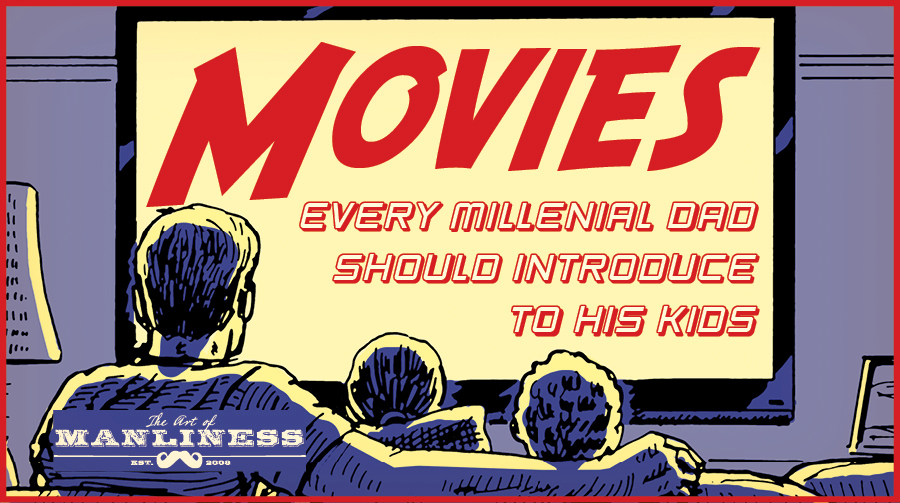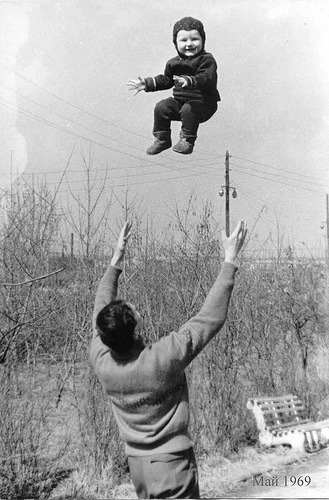
When my kids were little, I was an involved dad. I changed diapers, did middle-of-the-night feedings, and took the tykes to the doctor.
I wouldn’t say I was inherently drawn to doing these tasks. There wasn’t some paternal urge to nurture our kids when they were newborns and toddlers. I did it because I loved them and Kate, and I didn’t want Kate to carry the entire burden of childcare while also working full-time.
But as my kids have gotten older, into their pre-teen and teenage years, I’ve noticed something interesting happening. I suddenly have an intrinsic impulse to be more involved in my kids’ lives.
I have an instinctual urge to teach them how to do stuff in the adult world.
Here’s an example: A while back, as I was sitting on the couch reading, a thought occurred to me: “I need to help my kids open their own bank accounts.” So I took 14-year-old Gus and 11-year-old Scout to the nearby bank branch and had them talk to the teller about opening a checking account. In the process, I had to teach them about Social Security numbers and had them memorize theirs. I also taught them about debit cards and how to check their balances online.
It turns out that this shift I noticed in my fathering isn’t just anecdotal. In my podcast conversation with anthropologist Anna Machin, she noted that across cultures and throughout history, fathers have had a unique role in preparing their children for life outside the home.
Dad’s Outward Orientation
C.S. Lewis once observed that while a mother fiercely prioritizes the immediate interests of her own family, the father’s role is to consider the family’s connection to the broader community: “The relations of the family to the outer world — what might be called its foreign policy — must depend, in the last resort, upon the man . . . A woman is primarily fighting for her own children and husband against the rest of the world.”
Research backs up Lewis’ observation. Sociologists have consistently found that one of the things that separates moms and dads in how they parent is that dads typically have a more outward-facing orientation. While mothers tend to focus on the intimate, nurturing aspects of home life, fathers think more about their children’s place in the wider world.
Fathers are more likely to encourage risk-taking, independence, and exploration, while mothers are more apt to prioritize safety and caution. For example, fathers are likelier than mothers to push children to engage with strangers. They’re also more likely to nudge kids outside their comfort zones.
This is completely anecdotal, so take it with a grain of salt, but I’ve noticed that when parents use those chest baby carriers, moms typically have their baby facing toward them, while dads often have the baby facing out. That’s how I did it with my kids. A father’s outward orientation shows up in a lot of places.
The outward focus also appears in how dads communicate with their children. Fathers tend to use more complex and varied language, often referring to events and ideas beyond the immediate home environment. This serves as what researchers call a “linguistic bridge” to society, expanding children’s vocabulary and worldly knowledge.
The Younger Years: Father-Child Roughhousing Prepares Kids for the Outside World
Research shows that fathers consistently engage in more physical play than mothers, and roughhousing has a positive impact on children’s development. One key benefit is that it helps kids learn emotional regulation, which is essential for successful social interactions. Through roughhousing, kids learn to read cues indicating when someone has had enough and how to calm down if play becomes too intense. Consequently, children who regularly engage in rough-and-tumble play with their dads tend to be more socially adept with their peers. They’ve learned the unwritten rules of getting along with others: taking turns, recognizing limits, and resolving small conflicts.
The Teenage Era: Dads Build the Scaffolding to Independence
As children grow into teenagers, Dad’s role as a bridge builder to the outside world becomes even more critical.
During adolescence, kids naturally seek greater autonomy and begin facing the challenges of adult life. At the same time, anthropologists like Machin have noted that dads often feel a growing impulse to play a bigger role in their children’s lives. During a child’s adolescent years, a father’s job is to teach their children the skills they’ll need to survive and thrive in the world beyond the bounds of the familial home.
The content of this teaching will vary, depending on the environment the dad is sending their kids out into.
In environments where physical survival is the primary concern — say, where hunger or violence are common threats — fathers focus on teaching their children how to hunt and how to defend themselves.
In societies where economic hardship is the main risk, fathers teach practical skills: how to tend livestock, negotiate prices, or build trade relationships.
In the modern West, where physical and economic survival is generally assured, fathers tend to focus on cultural and social survival — helping kids get into good schools, handle “life admin,” make the right connections, and navigate complex social hierarchies.
This explains the sudden urge I have to teach my pre-teen and teenage kids how to do stuff like open banking accounts. I want them to have the skills necessary to be a functional, independent adult in suburban America. My dad-instinct is kicking in, telling me, “You’ve only got a few years to get these kids ready to head out on their own. Get busy teaching them all the skills they’ll need so they don’t end up living in the driveway in a van!”
The Fatherly Art of Launching Kids
You’ve got the instinct to teach your kids to get ready for the outside world — follow it. But if you’re seeking concrete ways to help build the scaffolding that will support your kids’ transition from dependent childhood to independent adulthood, here are some suggestions:
- Bring them along on errands.
- Have them order their own food at restaurants.
- Let them see you confidently talking with strangers.
- Take them to work with you occasionally.
- Include them in conversations about what is going on at work.
- Have them ask store clerks questions.
- Give them pointers on driving as they prepare to get their driver’s license.
- Let them help you with your weekend chores and expect them to complete age-appropriate chores of their own.
- Start paying them an allowance.
- Teach them basic maintenance for cars and bikes, like how to change flat tires on both.
- Teach them age-appropriate lessons about personal finance.
- Help them open a savings account at the bank, and encourage them to interact directly with the teller when they do so.
- Have them memorize their Social Security number.
- Have them be the one to call a business to ask a question they have.
- Take them to community activities you’re involved in, like church/community service projects.
- Show them how to file their own tax return when they get their first W-2 job.
- Explain how insurance works the next time you have to renew a policy.
- Have them schedule their own haircut appointments.
- Have them fill out their own applications for camps and sports.
- Get them our book Heading Out On Your Own — it covers lots of other life skills they’ll need in adulthood.
Fatherhood is about gradually launching the next generation into the world, equipped with the tools they need to thrive. This guiding role may be more crucial now than ever, given the complexities of our modern world. There’s a lot kids need to learn to manage in order to successfully live on their own.
Thankfully, nature has given dads the fatherly urge to teach their children how to do stuff. Lean into it, and help your kids become capable, confident, functioning adults.
For more insights into dads’ unique and essential role in childrearing, listen to this episode of the AoM podcast:







